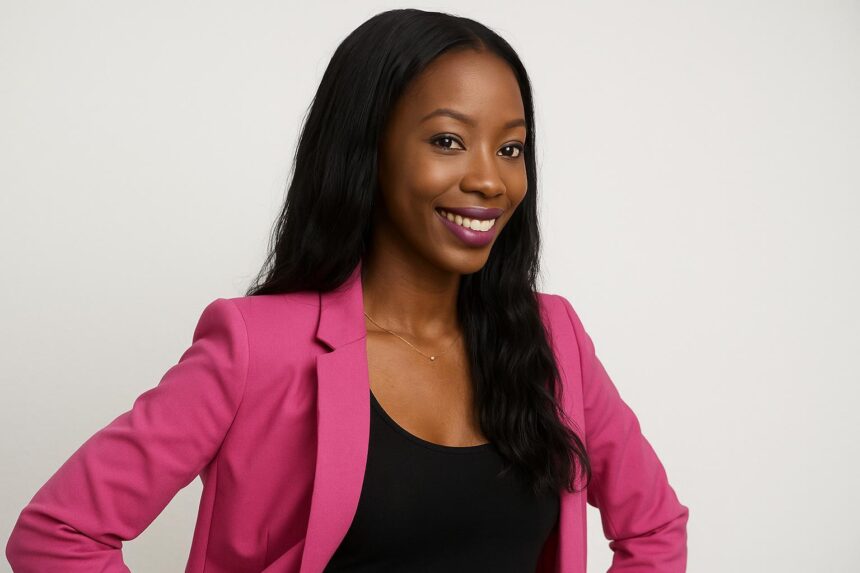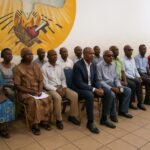A Highly Anticipated Literary Comeback
Bookshelves will brighten this September with Black in the City 2: Urban Identity Tales, the long-awaited sequel to Marie Munza’s breakout novel. Early reviewers from trade magazine Livres Hebdo describe the 304-page opus as “a sharp, breathing map of plural identity” (publisher press kit).
Munza, the Franco-Congolese poet turned novelist, again follows Amanda Parks, an ambitious marketing strategist who claims both Brazzaville roots and Bordeaux memories. Their intertwined journey permits the author to question heritage, belonging and the shortcuts often used to label French citizens with African ancestry.
By blending page-turning tension with delicate introspection, Black in the City 2 aims to please fans of contemporary urban fiction while widening the space for Black French heroines in mainstream publishing, a niche still underrepresented according to cultural commentator Aida Ngoma (radio interview).
Structured in three parts—City Roots, Unfinished Bridges, New Charts—the novel alternates first-person confession and group-chat transcripts. That formal elasticity mirrors the hybrid identity it portrays, inviting readers to surf between lyrical passages and abrupt corporate emails without ever losing emotional continuity.
Amanda Parks, Mirror of Afropean Youth
Amanda Parks strides through the offices of fictional communications giant API Group, decoding backroom bargains and the invisible ceiling facing women of colour. Munza paints corporate Paris as both opportunity engine and maze, forcing her protagonist to negotiate authenticity in a space calibrated for homogeneity.
While Amanda’s Afropean label offers rich culture, it also exposes her to daily micro-aggressions. The novel turns those moments into catalysts for self-definition rather than victimhood. In one scene, a casual remark about her braided hair transforms into a quiet manifesto on the politics of appearance.
Munza confirms she wants Amanda to speak for a cohort feeling “both at home and still questioned”, as she noted during a recent Instagram Live session celebrating the cover reveal. The character’s internal dialogues echo conversations overheard on Paris metro lines and Brazzaville terraces alike.
Entrepreneurship Reimagined as Freedom
Entrepreneurship is no mere background colour. Amanda nurtures a side project linking ethical fashion makers in Pointe-Noire with pop-up stores around Lyon. Munza positions enterprise as collective uplift, showing profit and purpose dancing together rather than standing in rivalry, a stance applauded by startup mentor Kady Mabiala.
Instead of glorifying overnight success, the plot highlights sleepless nights, incomplete business plans and the anxiety of pitching. Readers are immersed in WhatsApp chats, budget spreadsheets and family video calls that ground the dream in reality, making Amanda’s hustle relatable across continents and income brackets.
Munza’s narrative gently critiques systems that reward individual shine over community impact, yet never drifts into didacticism. The unanswered question—how to build without reproducing exclusion—lingers between chapters, encouraging dialogue long after the book is closed, a quality praised in early bookseller notes shared by Hello Éditions.
A Pen Rooted in Brazzaville and Bordeaux
Born in Brazzaville and raised in the Gironde, Munza fuses Central African musicality with the cadences of the French Atlantic coast. Her 2019 poetry collection Motéma already displayed that blend, but Black in the City has propelled her onto prize long-lists and university syllabi.
Critics salute her economy of language: each neon sign, bus ticket or plate of saka-saka carries symbolic heft without slowing the pace. That stylistic precision, reminiscent of Chimamanda Ngozi Adichie’s early prose according to journal AfrikLit, invites multiple readings and classroom discussions.
Yet Munza emphasises accessibility. “I want the auntie in Bacongo and the student in Nancy to feel equally welcomed,” she told community newspaper Les Dépêches de Brazzaville. Affordable pricing—14 euros for the paperback—mirrors that philosophy and aligns with Hello Éditions’ inclusive catalogue strategy.
Academics already eye the book for courses on postcolonial urban studies. Professor Lionel Kaba of Marien Ngouabi University notes that Amanda’s daily commute “maps power lines from boardroom to banlieue,” offering students a tangible case study alongside theoretical texts on intersectionality.
What Readers Can Expect on 19 September
Black in the City 2 hits Congolese and French shelves on 19 September, perfectly timed for the rentrée reading rush. Early pre-orders on local platform LivraMe suggest strong interest, notably in Pointe-Noire where Munza’s last signing session drew a queue that snaked outside the municipal library.
Hello Éditions plans a concise promotional tour mixing bookstore talks, TikTok live readings and a football-themed charity auction reflecting Amanda’s love of the sport. Details will roll out gradually, but the publisher confirms a Brazzaville stopover, delighting hometown readers eager for face-to-face interaction with the rising star.
Whether you read for the thrill of corporate intrigue, the comfort of cultural mirrors or the spark of entrepreneurial grit, Munza’s sequel promises a multilayered ride. As Ngoma sums up, “It is both a window and a mirror—a story we needed yesterday and still need tomorrow.”
But as release day nears, the simplest verdict remains: prepare a reading slot.





















